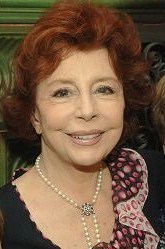
Sonja Alice Selma Toni Ziemann was a German film and television actress. In the 1950s, she was among Germany's most prominent actresses, awarded the 1950 Bambi for appearing, together with Rudolf Prack, in Schwarzwaldmädel. From the 1960s, she turned to more serious acting in international films such as The Secret Ways. She played in several anti-war films such as Strafbataillon 999. She also appeared on stage and in television.

A Girl Without Boundaries is a 1955 West German drama film directed by Géza von Radványi and starring Sonja Ziemann, Ivan Desny and Barbara Rütting. It was shot at the Bavaria Studios in Munich and on location in Athens, Fürstenfeldbruck and Munich-Riem Airport. The film's sets were designed by the art directors Hans Sohnle and Gottfried Will.

The Private Secretary is a 1953 West German comedy film directed by Paul Martin and starring Sonja Ziemann, Rudolf Prack and Paul Hörbiger. It was a remake of the 1931 German film The Private Secretary. The director Martin had worked on the earlier film as editor. It was shot at the Wandsbek Studios and on location in Hamburg. The film's sets were designed by Hermann Warm and Alfons Windau.
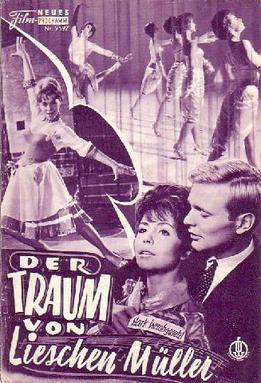
The Dream of Lieschen Mueller is a 1961 West German musical comedy film directed by Helmut Käutner and starring Sonja Ziemann, Martin Held and Cornelia Froboess.
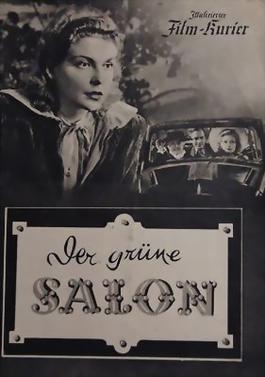
The Green Salon is a 1944 German drama film directed by Boleslaw Barlog and starring Paul Klinger, Margarete Haagen and Dorothea Wieck.
The Stone Rider is a 1923 German silent drama film directed by Fritz Wendhausen and starring Rudolf Klein-Rogge, Lucie Mannheim and Gustav von Wangenheim. It was shot at the Babelsberg Studios in Berlin.
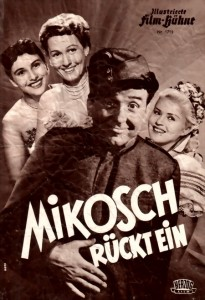
Mikosch Comes In is a 1952 West German comedy film directed by Johann Alexander Hübler-Kahla and starring Georg Thomalla, Willy Fritsch and Paul Hörbiger. It was shot at the Tempelhof Studios in West Berlin. The film's sets were designed by the art directors Willi A. Herrmann and Heinrich Weidemann.

Tell the Truth is a 1946 German comedy film directed by Helmut Weiss and starring Gustav Fröhlich, Mady Rahl, and Ingeborg von Kusserow. The film had a troubled production, and was originally filming in the final days of the Nazi era with Heinz Rühmann and his wife Hertha Feiler in the lead roles. Production was halted when Soviet forces took control of the Tempelhof Studios during the Battle of Berlin. The film was then remade in the British sector of Berlin with different leads but using substantial amounts of footage already shot during the previous production.
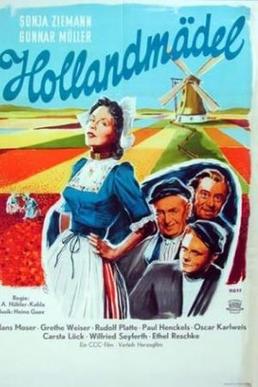
Dutch Girl is a 1953 German musical comedy film directed by Johann Alexander Hübler-Kahla and starring Sonja Ziemann, Gunnar Möller and Hans Moser. It was shot at the Spandau Studios in Berlin. The sets were designed by the art director Rolf Zehetbauer.

The Uncle from America is a 1953 West German comedy film directed by Carl Boese and starring Hans Moser, Georg Thomalla and Joe Stöckel. It was based on a play by Ferdinand Altenkirch which had previously been made into the 1932 film No Money Needed. It was shot at the Spandau Studios in Berlin. The film's sets were designed by the art director Erich Grave and Walter Kutz.
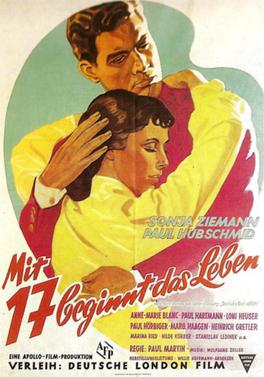
Life Begins at Seventeen is a 1953 West German romance film directed by Paul Martin and starring Sonja Ziemann, Paul Hubschmid and Paul Hörbiger. It was shot at the Tempelhof Studios in West Berlin. The film's sets were designed by the art director Wilhelm Vorwerg.

Don't Play with Love is a 1949 West German comedy film directed by Hans Deppe and starring Lil Dagover, Albrecht Schoenhals and Bruni Löbel. It was shot at the Althoff Studios in Berlin. The film's sets were designed by the art director Willi Herrmann.

My Sister and I is a 1954 West German musical film directed by Paul Martin and starring Sonja Ziemann, Adrian Hoven and Herta Staal. It is based on the 1930 stage work of the same name.

My Aunt, Your Aunt is a 1956 West German comedy crime film directed by Carl Boese and starring Theo Lingen, Hans Moser and Georg Thomalla. Boese had previously made a 1939 film of the same title. It was shot in Agfacolor at the Bavaria Studios in Munich. The film's sets were designed by the art directors Hertha Hareiter and Otto Pischinger.

Supreme Confession is a 1956 Italian-West German melodrama film directed by Sergio Corbucci and starring Anna Maria Ferrero, Massimo Serato and Sonja Ziemann.

The Reverend Turns a Blind Eye is a 1971 West German comedy film directed by Harald Vock and starring Roy Black, Uschi Glas and Georg Thomalla. It was followed by a 1972 sequel Always Trouble with the Reverend.

King of Hearts is a 1947 German comedy film directed by Helmut Weiss and starring Hans Nielsen, Aribert Wäscher, and Sonja Ziemann. The film was the first production of Artur Brauner's CCC Films, which would develop into a leading company in West German cinema. It was made at the Tempelhof Studios in Berlin. The film's sets were designed by the art director Ernst H. Albrecht. In the Soviet Zone of Germany, it was released by the state-owned company DEFA.

One Night Apart is a 1950 West German period comedy film directed by Hans Deppe and starring Kurt Seifert, Olga Chekhova and Sonja Ziemann. It was shot at the Tempelhof Studios in Berlin. The film's sets were designed by the art director Gabriel Pellon.
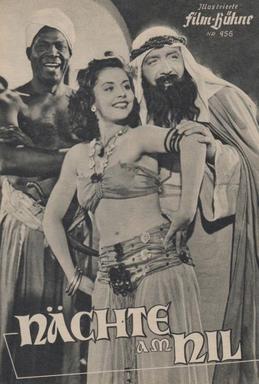
Nights on the Nile is a 1949 West German musical comedy film directed by Arthur Maria Rabenalt and starring Sonja Ziemann, Wolfgang Lukschy and Kurt Seifert. It was shot at the Tempelhof Studios in West Berlin and on location around the city including along the River Havel. The film's sets were designed by the art director Emil Hasler and Walter Kutz.
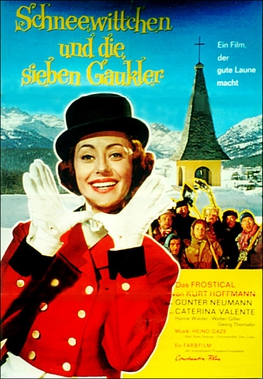
Snow White and the Seven Jugglers is a 1962 Swiss-West German musical comedy film directed by Kurt Hoffmann and starring Caterina Valente, Walter Giller and Georg Thomalla.



















